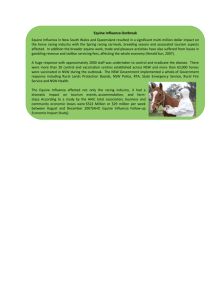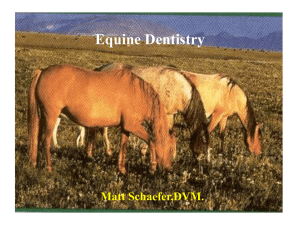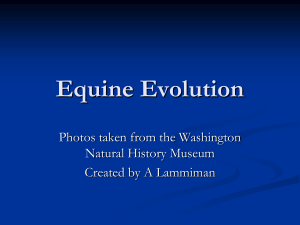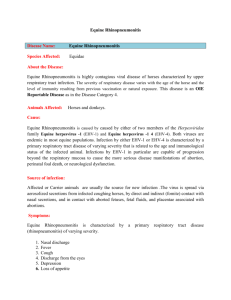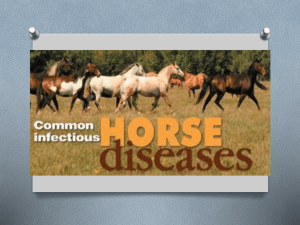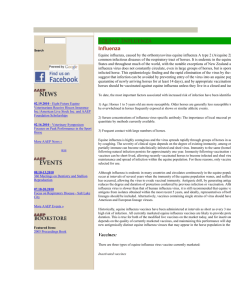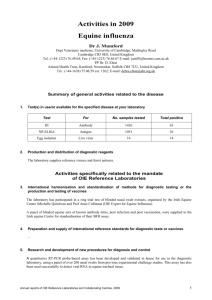Equine Influenza
advertisement
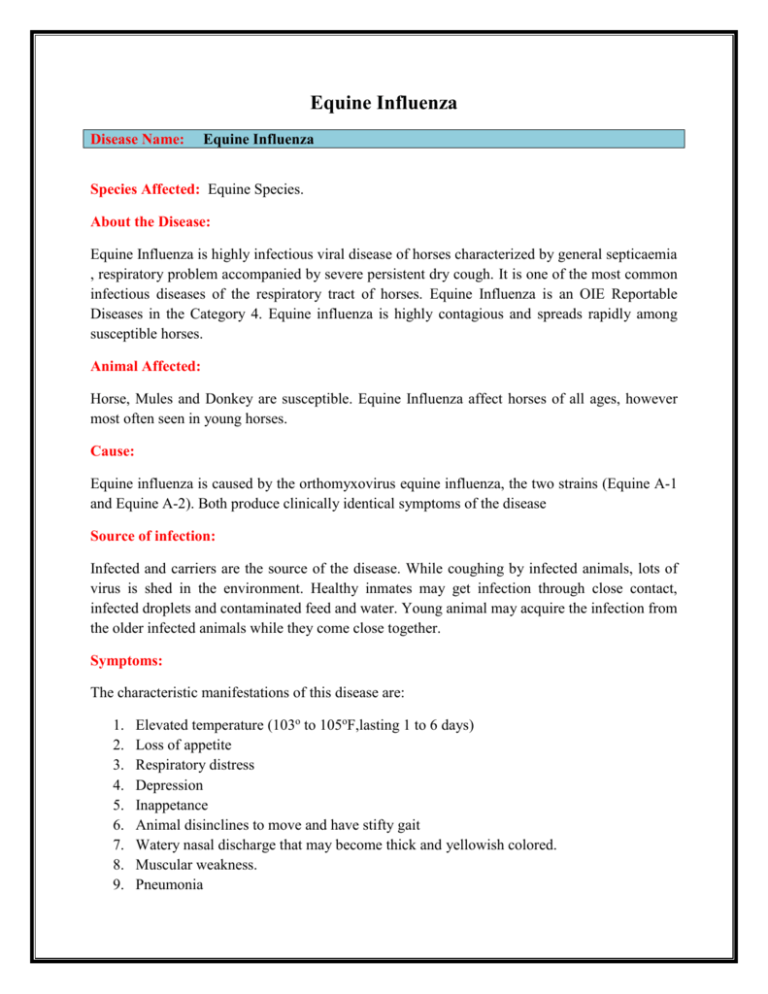
Equine Influenza Disease Name: Equine Influenza Species Affected: Equine Species. About the Disease: Equine Influenza is highly infectious viral disease of horses characterized by general septicaemia , respiratory problem accompanied by severe persistent dry cough. It is one of the most common infectious diseases of the respiratory tract of horses. Equine Influenza is an OIE Reportable Diseases in the Category 4. Equine influenza is highly contagious and spreads rapidly among susceptible horses. Animal Affected: Horse, Mules and Donkey are susceptible. Equine Influenza affect horses of all ages, however most often seen in young horses. Cause: Equine influenza is caused by the orthomyxovirus equine influenza, the two strains (Equine A-1 and Equine A-2). Both produce clinically identical symptoms of the disease Source of infection: Infected and carriers are the source of the disease. While coughing by infected animals, lots of virus is shed in the environment. Healthy inmates may get infection through close contact, infected droplets and contaminated feed and water. Young animal may acquire the infection from the older infected animals while they come close together. Symptoms: The characteristic manifestations of this disease are: 1. 2. 3. 4. 5. 6. 7. 8. 9. Elevated temperature (103o to 105oF,lasting 1 to 6 days) Loss of appetite Respiratory distress Depression Inappetance Animal disinclines to move and have stifty gait Watery nasal discharge that may become thick and yellowish colored. Muscular weakness. Pneumonia 10. Death. Control and Management: Prevention and Control of Equine influenza requires hygienic management practices and vaccination. 1. 2. 3. 4. All horse should be timely vaccinated Quarantine of newly brought animals. Transporting vehicle should be thoroughly disinfected. Vaccinated horse should not be allowed to perform racing up to 10 days following vaccination. 5. Slaughtering and proper disposal of infected animals is advisable for the risk of further transmission. Vaccines: There are three types of equine influenza virus vaccine currently marketed: 1. Inactivated vaccines 2. Modified-live (MLV) cold-adapted equine influenza /A2 vaccine 3. Canary pox vector vaccine All horse should be vaccinated (immunized).First vaccine should be given at 6 months of age. Two such vaccines at 21 days interval should be made thereafter. Annual booster vaccine should be given subsequent at every year. Meteorological Occurrence: High humid area and cold temperature may have certain implications on the spread of the disease. Prepared by: Dr. Peter N JRF, NADRS, Manipur. Disease Investigatory Laboratory Directorate of Veterinary, & A.H. Services, Manipur
